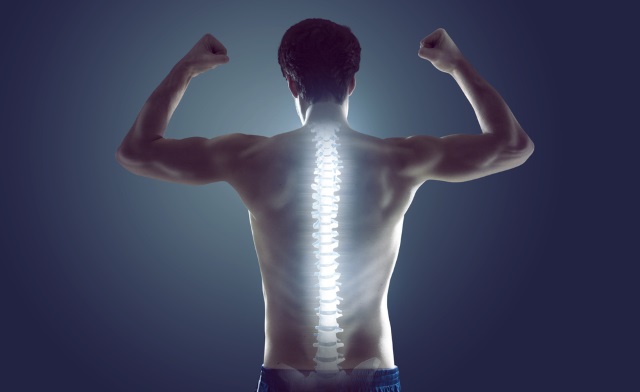After searching the world for a solution, a Palestinain in medical distress found it close to home – in an Israeli hospital.
By: United with Israel Staff
Yousef Rabaya 19, spent most of his life in bed at home in the Palestinian city of Jenin. He could sit only if he was propped up. Standing was excruciating and dangerous, and could even cause permanent paralysis.
Yousef was born with Cerebral Palsy (CP), a movement disorder caused by brain damage. Sometimes the irregular muscle movement pulls on the spine, causing a curve. Yousef suffered from neuromuscular kyphosis, a curve from the front to the back that looks like a hump. With time, the curve became more pronounced.
By his teen years, Yousef’s back curved so much that that he couldn’t stand and suffered from terrible pain. Iyad Rabaya, Yousef’s father, said that his son’s condition “was very difficult, and we took him to treatments wherever possible, hospitals, clinics, institutes and more.”
As citizens of the Palestinian Authority (PA) with connections to many European countries, they reached out for help. Iyad said that they “searched the whole world in the hope of finding treatment and a solution to his [Yousef’s] condition. We reached out to European countries, to no avail.”
Two years ago, they flew to Boston. “We received financial and emotional support from many people in the world, Norwegians, Swedes and others. In Boston, rods were implanted in his back to strengthen his spine,” Iyad recalled.
The Cure is Close to Home
Tragically, Yousef’s condition deteriorated and the implanted rods broke. The pain was unbearable. Now Yousef couldn’t sit or stand.
The solution turned out to be close to home, right in Israel.
“No one in Israel or abroad wanted to treat him until we got to Dr. Schroeder at Hadassah,” Iyad said.
Dr. Josh Schroeder, a senior surgeon and spine specialist in Hadassah’s orthopedic department, accepted Yousef as a patient despite his complex condition.
“Yousef arrived at Hadassah about a month ago. We performed a reconstruction surgery on the broken rods implanted in his back,” Schroeder recalled. ”In order to do this effectively, we needed equipment that is not used in Israel, because the technique and equipment for its implementation are used almost exclusively in the United States. The equipment was brought in from the United States. We received four boxes with rods, and screws developed by Dr. Oheneba Boachie-Adjei.”
Dr. Boachie-Adjei is an emeritus surgeon at the Hospital for Special Surgery in New York.
Yousef underwent surgery for over four hours the Hadassah’s underground surgery suites in the Sarah Wetsman Davidson Hospital Tower. A few days later, he managed to stand on his feet for the first time in half a year.
The procedure, as described by Dr. Schroeder, was indeed complex. “The incision was made on the scar from the previous operation in Boston, the spine was exposed and the implants were broken. With the help of the special equipment brought from the United States, the broken implants were removed, the spinal deformity was corrected over time, and new implants anchored to the vertebrae were implanted. ”
Yousef is up walking, and Hadassah has recommended physical therapy to build the muscle structure that deteriorated over the time he could not get out of bed.
Iyad Rabaya was overjoyed. “With my whole heart, I want to thank the doctors and the entire medical team who saved my son,” he said.
Israel regularly offers its medical services, know-how and expertise to Palestinian care providers and patients, in many cases free of charge.
Most recently, a new branch of St. John’s Eye Hospital was opened in Hamas-controlled Gaza and corneal transplant surgeries are now being performed in the Gaza Strip by Israeli-trained Palestinian doctors.
